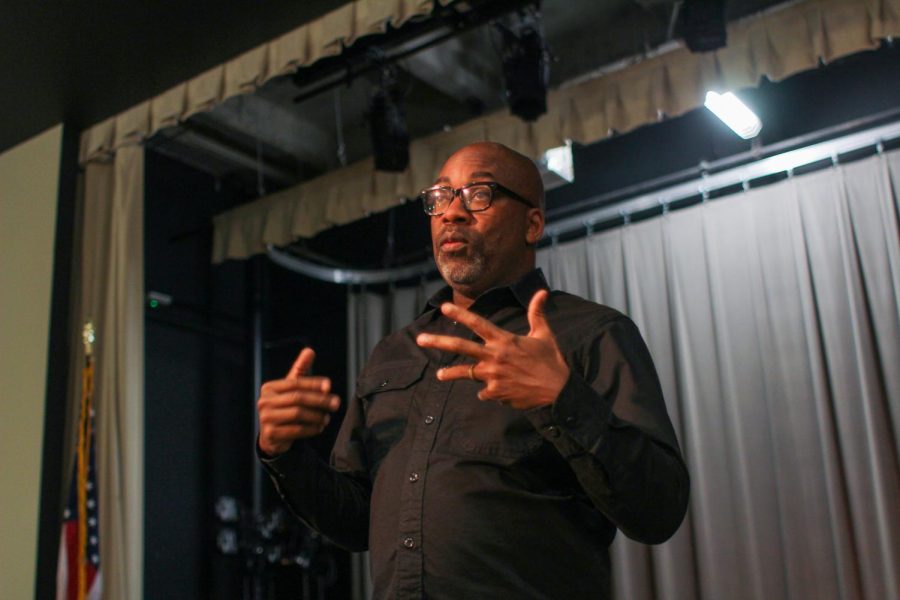Professor earns NAACP nomination
March 21, 2022
Editor’s Note: This article first appeared in the March 1, 2022 flipbook.
The sun beamed on Dr. Leonard Moore as he spread out by the side of his backyard pool, sifting through emails. His ringtone pierced the air as his inbox flooded with congratulatory messages.
Relentless calls prompted him to go back and further examine an email he originally overlooked. After quickly going to the NAACP website and scrolling through a star-studded list of names, he found his own.
As reality set in, he sat in awe as the onslaught of congratulatory messages continued to come in. He earned the nomination for an NAACP Image Award.
“The book nomination is a testament that I’ve made a positive contribution to the culture, and that’s important,” Moore said.
American history professor Leonard Moore was nominated for an NAACP Image Award in the Outstanding Literary Work: Instructional category for his book, “Teaching Black History to White People,” published Sept. 14, 2021. The 53rd annual NAACP Image Award show, broadcasted Feb. 26, highlighted the work of people of color in over 80 categories. What began as Moore just recording his thoughts on Black studies turned out to be stellar, nationally recognized writing.
“I come into contact with a lot of white people who don’t understand Black frustration,” Moore said. “They have no understanding of the Black experience. (This book) was a way for me to put these ideas down on paper.”
After the deaths of George Floyd and Breonna Taylor and the resurgence of the Black Lives Matter movement in 2020, racial tension found its way to the forefront of the American psyche. While some took to protest, Moore said the exposure to American ignorance and division inspired him to write “Teaching Black History to White People,” which he described as a memoir, guidebook and history lesson all about the importance of teaching Black history to everyone.
“You can live in an integrated neighborhood but still live in a segregated world,” Moore said. “Black people get frustrated because we think white folks should know, but they don’t because they’ve never been taught.”
Black studies have always been the subject of Moore’s passion, whose life’s goal has always been being a Black History teacher. He achieved that lifelong dream, and is the professor of several Black studies courses at UT.
Nick Grammer, a biomedical engineering and African and African diaspora studies freshman, said he appreciates the blunt and truthful way Moore approaches teaching these courses to white students.
“(His teaching) makes me more empathetic,” Grammer said. “A lot of derogatory and demeaning things are placed upon the Black community, but we’re not getting the knowledge we need to understand why things happen the way they happen. In the white community, we only talk about white people.”
Exercise science freshman Madison Buckley said honesty about racial issues, historical context and personal anecdotes characteristize both Moore’s teaching and his book, making “Teaching Black History to White People” impossible to put down.
“Even though he’s a tenured professor, he makes a lot of money (and) he’s respectable, he still goes through the same problems a Black kid from a bad neighborhood (would),” Buckley said. “I learned stuff that I didn’t learn in normal textbooks.”
Despite Tabitha Brown’s victory in the category, the nomination of Moore’s book proved it to be an impressive and impactful work. However, he said he wrote this book as a way to combat ignorance through education rather than for an award.
“This is a big deal, (but) you can’t write books or movies with the goal of (getting an) award,” Moore said. “You do the work that God has called you to do, and if other people notice, that’s extra.”



